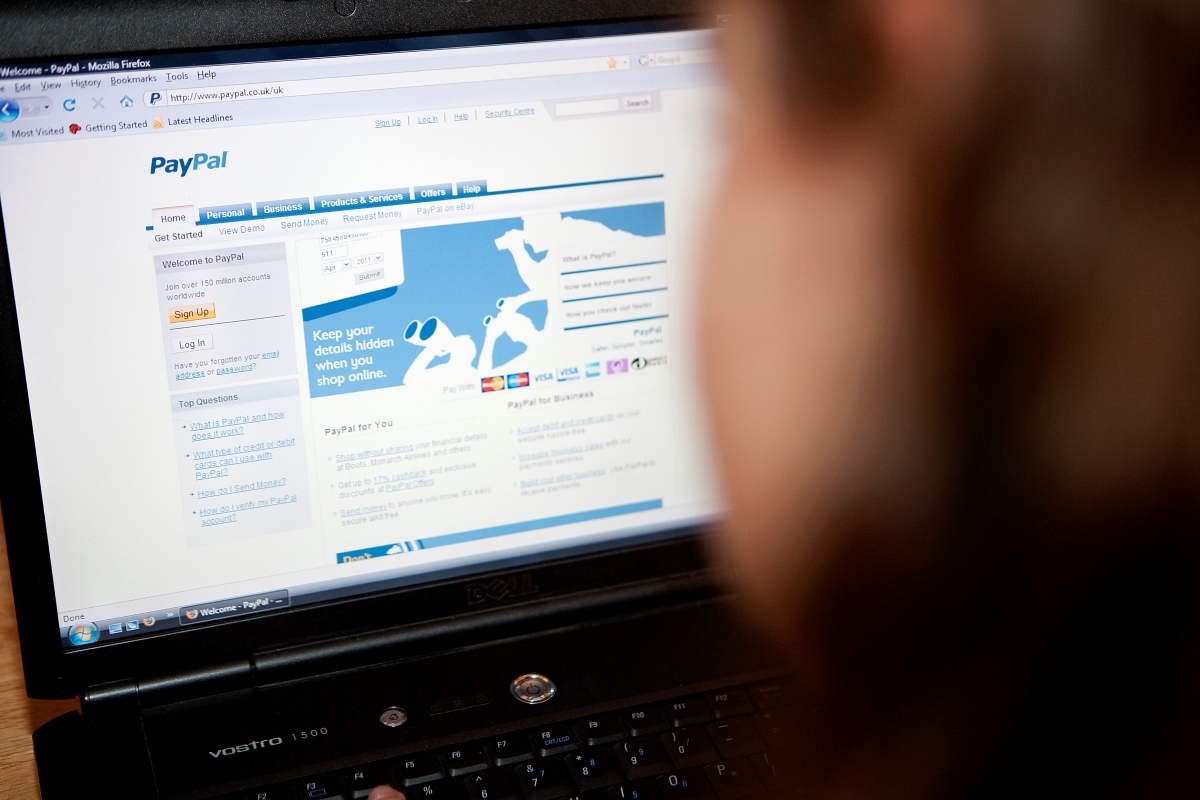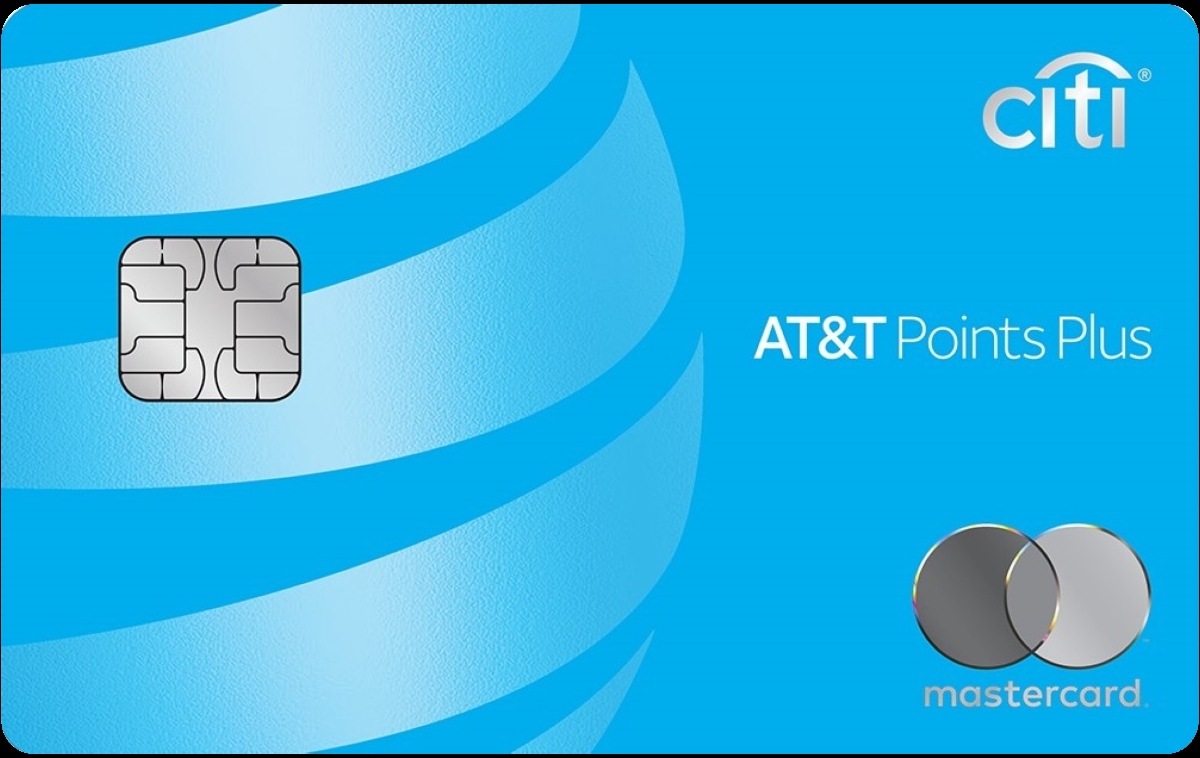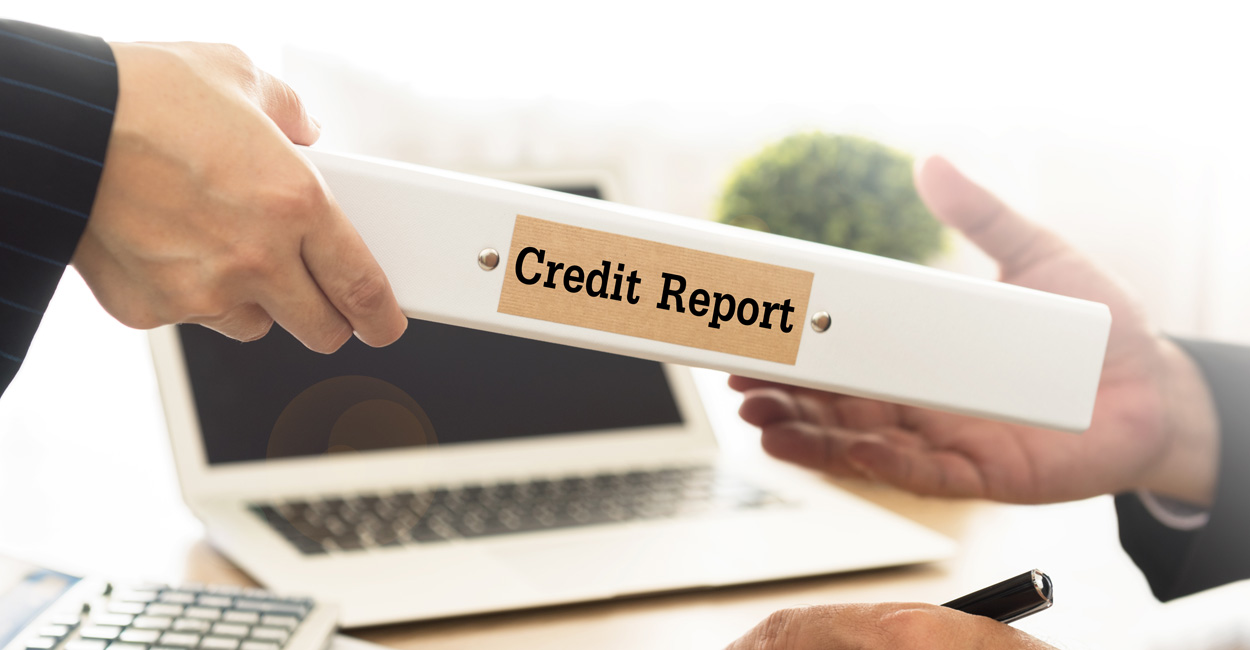

Finance
What Credit Bureau Does Paypal Use
Published: January 11, 2024
Discover which credit bureau Paypal uses to check your credit when applying for their finance services.
(Many of the links in this article redirect to a specific reviewed product. Your purchase of these products through affiliate links helps to generate commission for LiveWell, at no extra cost. Learn more)
Table of Contents
Introduction
When it comes to managing your finances, having a good credit score is crucial. Whether you’re applying for a loan, a credit card, or even making an online payment, your creditworthiness plays a significant role in the decision-making process of financial institutions. Therefore, it’s essential to be aware of the credit bureaus and how they impact your financial transactions.
Credit bureaus are agencies that collect and maintain credit information on individuals and businesses. They compile this data from various sources, including banks, credit card companies, and other creditors. The information collected by credit bureaus helps financial institutions assess the creditworthiness and reliability of potential borrowers.
One well-known financial institution that heavily relies on credit bureaus is PayPal. As a leading online payment platform, PayPal utilizes credit bureau information to evaluate the creditworthiness of its users. This evaluation plays a crucial role in determining whether a customer is eligible for certain services or financial products, such as PayPal Credit.
By understanding how PayPal uses credit bureaus, you can gain insights into the factors they consider and how it impacts your financial transactions. In this article, we will dive deeper into PayPal’s use of credit bureaus, the factors they look at during the credit evaluation process, and the benefits of using credit bureaus for PayPal.
Understanding Credit Bureaus
Credit bureaus, also known as credit reporting agencies, are entities that collect and maintain credit-related information on individuals and businesses. They act as centralized databases that provide a comprehensive picture of an individual’s financial history, including their borrowing and repayment behavior.
These bureaus gather information from various sources, such as banks, credit card companies, lenders, and collection agencies. They compile this data into credit reports, which contain details about an individual’s credit accounts, payment history, outstanding balances, and any negative information like late payments or defaults.
The three major credit bureaus in the United States are Equifax, Experian, and TransUnion. Each bureau maintains its independent database, and financial institutions and creditors can choose to report to one, two, or all three bureaus. It’s important to note that while the information in credit reports may differ slightly between bureaus, the main components and scoring methodologies remain relatively consistent.
Consumers have the right to access their credit reports from these bureaus and review the accuracy of the information. Any inaccuracies or discrepancies can be disputed and rectified through a formal process known as credit report disputes.
The credit information collected by these bureaus serves several purposes. First, it allows lenders and financial institutions to assess an individual’s creditworthiness when considering applications for loans, credit cards, or other financial products. A higher credit score indicates a lower credit risk, making individuals more likely to be approved for credit and receive more favorable terms and interest rates.
Second, credit reports help individuals monitor their own creditworthiness and detect any fraudulent activity or inconsistencies. Regularly reviewing your credit reports can help identify any potential identity theft or unauthorized accounts opened in your name.
In summary, credit bureaus play a crucial role in the financial system, providing lenders with valuable insights into an individual’s credit history. By understanding how credit bureaus operate, you can be better equipped to manage your credit effectively and make informed financial decisions.
Importance of Credit Bureaus for Financial Institutions
Credit bureaus serve as a vital resource for financial institutions, providing them with essential information to assess the creditworthiness and reliability of borrowers. Here are some key reasons why credit bureaus are crucial for financial institutions:
- Assessing Creditworthiness: Financial institutions heavily rely on credit bureaus to evaluate the creditworthiness of individuals and businesses. By reviewing credit reports, lenders can assess an applicant’s payment history, outstanding debts, and overall financial health. This information helps lenders determine the level of risk associated with granting credit and making lending decisions.
- Managing Risk: Credit bureaus play a critical role in helping financial institutions manage risk. By providing reliable and comprehensive credit information, lenders can assess the likelihood of borrowers defaulting on their loans or failing to meet their financial obligations. This enables lenders to make informed decisions on loan approvals, interest rates, and credit limits, mitigating potential losses.
- Preventing Fraud: Credit bureaus help financial institutions detect and prevent fraudulent activities. By comparing credit reports and identifying inconsistencies, lenders can spot potential instances of identity theft, fraudulent accounts, or unauthorized credit applications. This helps protect both financial institutions and consumers from financial harm.
- Streamlining Processes: Credit bureaus facilitate the loan application process for financial institutions. By accessing a borrower’s credit report, lenders can quickly evaluate an applicant’s creditworthiness without relying solely on self-reported information. This streamlines the application process, allowing for faster loan approvals and improved customer service.
- Compliance with Regulations: In many countries, financial institutions are required to comply with regulations that mandate the use of credit bureaus for assessing creditworthiness. By leveraging credit bureaus, lenders ensure they are adhering to legal and regulatory requirements, promoting transparency and fairness in the lending process.
Overall, credit bureaus play a vital role in the financial ecosystem by providing financial institutions with accurate and reliable credit information. This enables lenders to make informed decisions, manage risk effectively, prevent fraud, and ensure compliance with regulatory frameworks. By leveraging the services of credit bureaus, financial institutions can operate efficiently and confidently in the lending space.
PayPal’s Use of Credit Bureaus
As one of the leading online payment platforms, PayPal utilizes credit bureaus to evaluate the creditworthiness of its users. By leveraging credit bureau data, PayPal can make informed decisions regarding eligibility for certain financial products and services, such as PayPal Credit.
When a user applies for PayPal Credit, PayPal may request their permission to access their credit report from one or more credit bureaus. This allows PayPal to review the user’s credit history, payment behavior, outstanding debts, and other relevant financial information. By analyzing this data, PayPal can assess the individual’s creditworthiness and determine their eligibility for PayPal Credit.
PayPal’s use of credit bureaus helps ensure responsible lending and risk management. By evaluating an individual’s credit history, PayPal can make informed decisions on credit limits, interest rates, and repayment terms. This helps protect both PayPal and its customers by mitigating the risk of defaults and ensuring that credit is extended to individuals who are financially capable of managing it.
It’s important to note that PayPal’s use of credit bureaus is not limited to PayPal Credit. In some cases, when users link their bank accounts or credit cards to their PayPal accounts, PayPal may also perform credit checks or review credit information to validate the user’s identity and assess any potential risk associated with the transaction.
By utilizing credit bureaus, PayPal can evaluate the creditworthiness of its users accurately and efficiently. This allows for a streamlined and seamless user experience, as eligible users can access the financial products and services offered by PayPal without unnecessary delays or complicated application processes.
Overall, PayPal’s use of credit bureaus demonstrates their commitment to responsible lending and risk management. By leveraging credit bureau data, PayPal can make informed decisions to protect both its own interests and the interests of its users, ensuring a secure and reliable payment experience for all parties involved.
Factors Considered by PayPal in Credit Evaluation
When evaluating the creditworthiness of users, PayPal takes into account various factors to make informed decisions. While the exact criteria may vary, here are some common factors that PayPal considers during their credit evaluation process:
- Credit History: PayPal reviews an individual’s credit history to assess their repayment behavior and track record. This includes analyzing the individual’s payment history, outstanding debts, and any negative information such as defaults or late payments. A strong credit history with timely payments and low outstanding debts can positively influence PayPal’s credit evaluation.
- Income and Employment: PayPal may consider an individual’s income and employment status as indicators of their ability to repay credit. A steady and sufficient income indicates financial stability and a higher likelihood of meeting repayment obligations. Proof of steady employment or a reliable source of income is often required during the credit evaluation process.
- Debt-to-Income Ratio: PayPal takes into account an individual’s debt-to-income ratio, which is calculated by dividing total monthly debt payments by monthly income. A lower debt-to-income ratio suggests better financial health and a higher capacity to handle additional credit. Individuals with a low debt-to-income ratio are generally viewed more favorably during the credit evaluation process.
- Financial Obligations: PayPal considers an individual’s existing financial obligations, such as other loans or credit card debts. The cumulative effect of multiple credit accounts can impact the credit evaluation, as it affects the individual’s capacity to take on additional credit obligations and manage repayments effectively.
- Public Records and Collections: PayPal also takes into account any public records or collections associated with the individual. This includes bankruptcy filings, civil judgments, tax liens, or accounts in collections. Such negative records can have a significant impact on the credit evaluation and may result in the denial of credit or stricter terms and conditions.
It’s important to note that while these factors are commonly considered by PayPal, the specific weight placed on each factor may vary based on individual circumstances and the nature of the credit being evaluated. Additionally, PayPal’s credit evaluation process may involve proprietary algorithms and models that consider additional factors specific to their risk assessment methodology.
By considering these factors, PayPal aims to make responsible lending decisions and provide credit to individuals who demonstrate the ability to manage and repay credit effectively. This helps protect both PayPal and its customers, ensuring a sustainable and secure financial ecosystem.
Benefits of Using Credit Bureaus for PayPal
PayPal’s utilization of credit bureaus offers several benefits, both for PayPal and its users. Here are some key advantages of using credit bureaus in PayPal’s credit evaluation process:
- Accurate Credit Assessment: Credit bureaus provide comprehensive and reliable credit information, enabling PayPal to make accurate assessments of an individual’s creditworthiness. By accessing credit reports, PayPal can evaluate an individual’s payment history, outstanding debts, and other relevant financial data. This helps ensure that credit decisions are based on factual information rather than subjective judgment.
- Reduced Risk: Leveraging credit bureaus minimizes the risk for PayPal by providing valuable insights into an individual’s credit history and financial behavior. This helps PayPal assess the likelihood of defaults or late payments, reducing the risk of financial losses. By making informed lending decisions, PayPal can minimize the potential impact of non-payment or fraudulent activity.
- Streamlined Processing: Utilizing credit bureaus allows PayPal to streamline its credit evaluation process. By accessing credit reports electronically, PayPal can quickly review an individual’s credit information, saving time and resources. This leads to faster credit decisions and a more seamless experience for users, as they can receive instant feedback regarding their eligibility for PayPal Credit or other financial services.
- Promotes Responsible Credit Usage: Credit bureaus promote responsible credit usage, which aligns with PayPal’s commitment to financial responsibility. By considering an individual’s credit history, PayPal encourages responsible borrowing behavior and discourages excessive debt. This helps protect both the interests of PayPal and its users, ensuring that credit is extended to individuals who can manage it effectively.
- Enhanced Customer Service: Leveraging credit bureaus enables PayPal to provide enhanced customer service. By utilizing credit information, PayPal can offer personalized financial solutions, recommendations, and benefits to individuals based on their creditworthiness. This tailored approach enhances the user experience and strengthens the relationship between PayPal and its customers.
In summary, utilizing credit bureaus in its credit evaluation process offers numerous benefits for PayPal. From accurate credit assessment and reduced risk to streamlined processing and promoting responsible credit usage, credit bureaus play a critical role in supporting PayPal’s mission to provide secure and responsible financial services.
Alternatives to Traditional Credit Bureaus for PayPal
While traditional credit bureaus play an important role in assessing creditworthiness, there are alternative approaches that PayPal can consider to complement or enhance their credit evaluation process. These alternatives offer additional insights and considerations that go beyond the information provided by traditional credit bureaus. Here are some potential alternatives:
- Alternative Credit Scoring Models: PayPal can explore alternative credit scoring models that take into account non-traditional data sources. These models consider factors like rental payment history, utility bill payments, and even social media data to assess creditworthiness. By incorporating a broader range of data, PayPal can gain a more comprehensive view of an individual’s financial behavior and creditworthiness.
- Bank Account Analysis: Analyzing a user’s bank account activity can provide valuable insights into their financial behavior. By evaluating factors such as income stability, saving habits, and transaction history, PayPal can gauge an individual’s financial health and capacity to handle credit obligations. This approach can provide a more holistic view of the user’s financial profile.
- Payment Patterns and PayPal Usage: PayPal can leverage its own data on a user’s payment patterns and overall PayPal usage to evaluate creditworthiness. Factors such as transaction frequency, payment history, and account age can provide valuable indicators of an individual’s financial responsibility and reliability. This approach allows PayPal to assess creditworthiness based on the user’s specific behavior on their platform.
- Collaboration with Fintech Companies: Collaborating with fintech companies that specialize in alternative credit assessment can provide PayPal with additional insights. These fintech companies leverage advanced algorithms and machine learning techniques to analyze alternative data sources, such as educational background, employment history, or even psychometric data. Partnering with such companies can enhance PayPal’s credit evaluation process with innovative and predictive models.
- Financial Education Programs: PayPal can implement financial education programs to help users build their creditworthiness. By offering resources, tools, and guidance on responsible financial management, PayPal can empower users to improve their credit profiles over time. This approach not only benefits the users but also contributes to a more reliable and responsible customer base.
By exploring alternative approaches to credit evaluation, PayPal can gain a more comprehensive understanding of an individual’s creditworthiness. These alternatives can enhance the traditional credit bureau data with additional factors and sources of information. By incorporating these options, PayPal can make more informed credit decisions while expanding the accessibility of financial services to a wider range of individuals.
Conclusion
Credit bureaus play a crucial role in the financial ecosystem, and PayPal leverages their services to evaluate the creditworthiness of its users. By accessing credit reports and considering factors such as credit history, income, and debt-to-income ratio, PayPal can make informed decisions regarding eligibility for financial products and services like PayPal Credit.
The use of credit bureaus offers several benefits for PayPal, including accurate credit assessment, reduced risk, streamlined processing, promotion of responsible credit usage, and enhanced customer service. By leveraging credit bureau data, PayPal can provide personalized financial solutions and recommendations to its users, enhancing the overall user experience.
While traditional credit bureaus are valuable, PayPal can also explore alternative approaches to credit evaluation. Alternative credit scoring models, bank account analysis, payment patterns, collaboration with fintech companies, and financial education programs are among the alternatives that can complement or enhance PayPal’s credit evaluation process.
In conclusion, credit bureaus are instrumental in facilitating responsible lending and risk management for PayPal. By utilizing their services, PayPal can make informed credit decisions, protect its interests, and provide secure and reliable financial services to its users. As technology and data sources continue to evolve, PayPal can also explore alternative approaches that provide additional insights into creditworthiness. Ultimately, these efforts contribute to a more inclusive and accessible financial environment for individuals using PayPal’s services.














